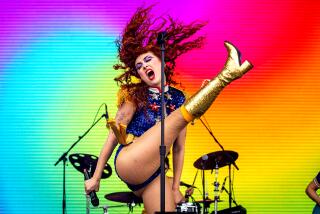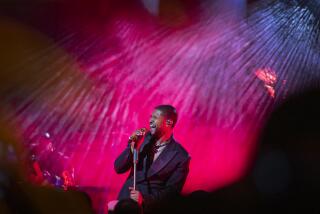Why Coachella 2016 might feel more like late-’80s L.A.
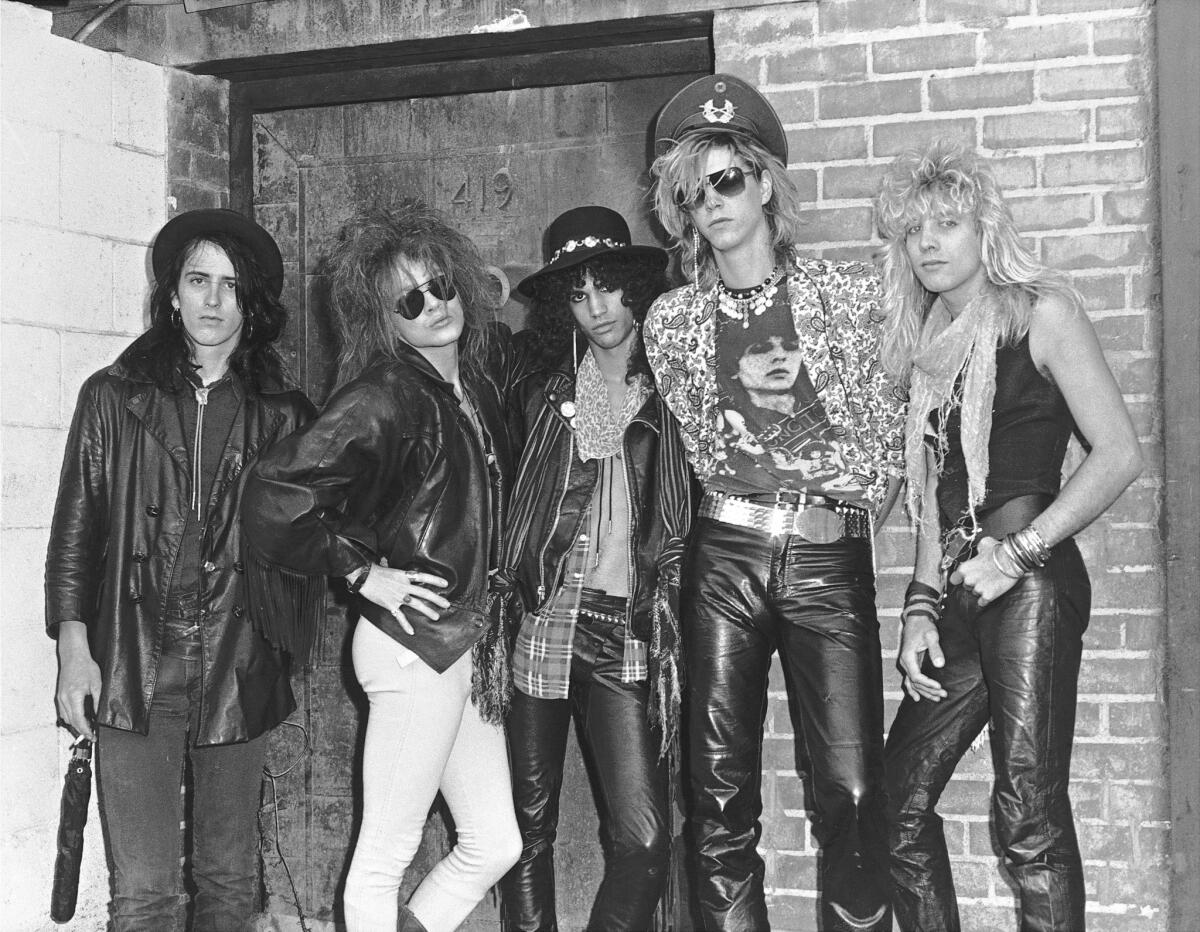
- Share via
The Pixies in 2004. Rage Against the Machine in 2007. Outkast in 2014.
Reunions are an established tradition at the Coachella Valley Music and Arts Festival, one that draws fans to this annual event as reliably as the dramatic landscape surrounding Indio’s manicured Empire Polo Club. This year’s edition, set to run Friday through Sunday and again April 22 to 24, is no different, with the first large-scale concert by LCD Soundsystem since 2011.
Coachella 2016: Live coverage of the bands, the fashion, the scene
But for three or four hours on Saturday night, Coachella 2016 may do more than just revive a band. It could open a portal to Los Angeles in the late 1980s.
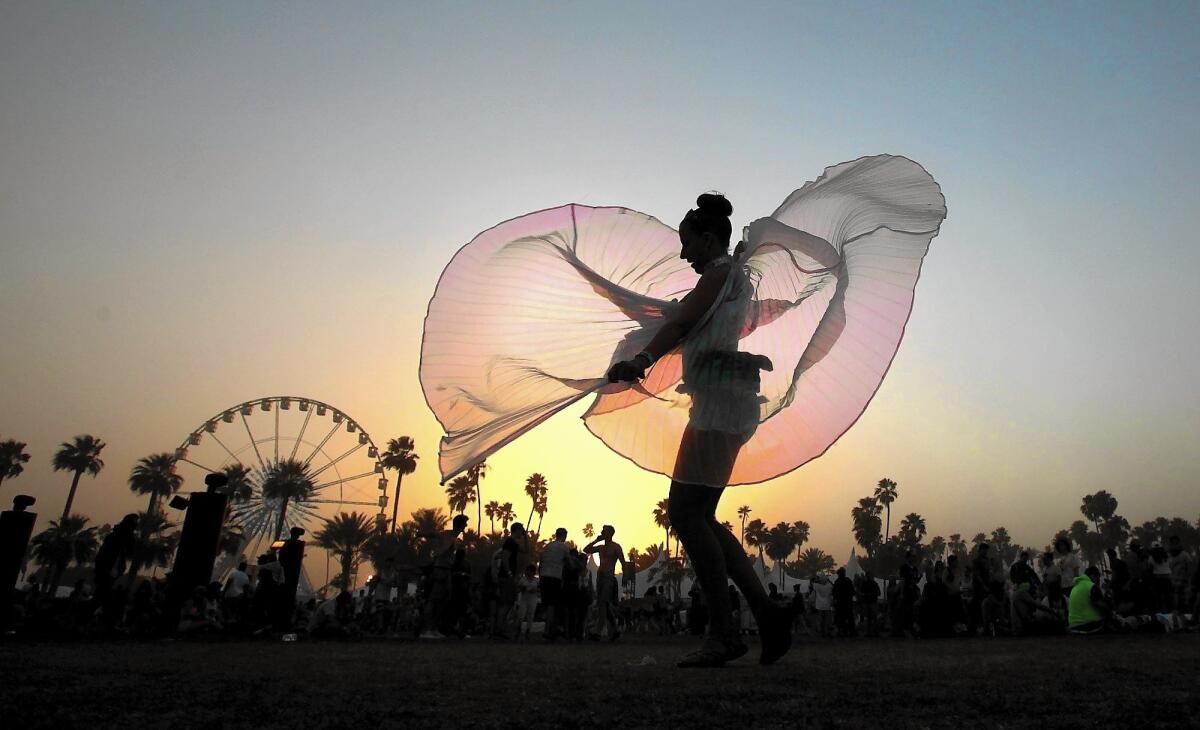
That’s the specific time and place that produced the two acts scheduled for back-to-back performances on Coachella’s main stage: first, rapper Ice Cube, whose advertised solo set is widely expected to sprout a reunion of N.W.A, followed by Guns N’ Roses, the hard-rock band that again brings together frontman Axl Rose and his long-estranged guitarist, Slash.
Plenty separated these outfits back then, including their neighborhoods of origin. As it proudly proclaimed in the title of its 1988 debut, N.W.A came “Straight Outta Compton,” while Guns N’ Roses emerged from the seedy clubs of West Hollywood. And where the members of N.W.A barked their rhymes over blistering hip-hop beats, Guns N’ Roses’ 1987 debut, “Appetite for Destruction,” paired Rose’s paranoid shriek with Slash’s heavy guitar riffs.
Yet both groups described their surroundings in vivid detail, capturing much of the dark energy that seemed to be gathering in L.A. at the time. You listen now to “Welcome to the Jungle” or N.W.A’s unprintably titled song about the police and you catch the bitter taste of anger and desperation — as well as a premonition of the chaos to come in just a few years with Rodney King, the L.A. riots, O.J. Simpson, even the Northridge earthquake.
That energy made the two bands among the most exciting of that era. And now, three decades after they busted into the world, they’re both poised to bring a bit of raw fury to a festival that tends to encourage happy escapism.
The question, of course, is whether they’re still in touch with those bad vibes. We got a few indications last weekend when, on the same night, Guns N’ Roses played the first of two warm-up shows in Las Vegas and N.W.A was inducted into the Rock and Roll Hall of Fame.
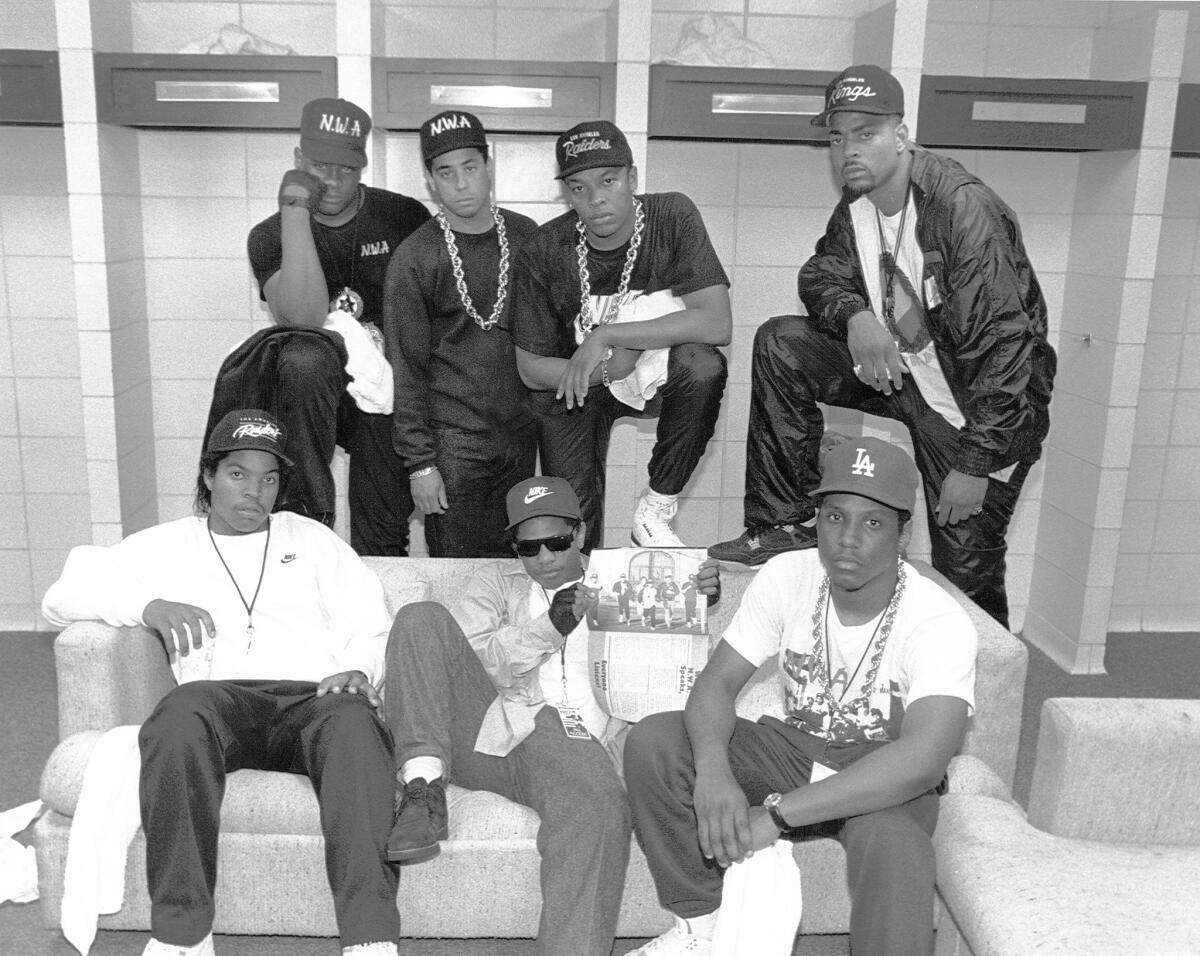
The latter, at least, offered hope. Faced with doubts from some observers (including Gene Simmons of KISS) about a rap group’s rightful place in the hall, Ice Cube used his acceptance speech to rebut that prejudice with clear-eyed vehemence.
“Rock ‘n’ roll is not an instrument,” he said. “Rock ‘n’ roll is not even a style of music.” He added that rock ‘n’ roll is “a spirit” and that it’s “not conforming to the people who came before you but creating your own path in music and in life.”
Here was a gangsta rap pioneer turned famous movie star still being told no, just as he was during the group’s early days chronicled in last year’s hit biopic, “Straight Outta Compton.” And just as he did back then, Ice Cube responded by speaking truth to power.
Guns N’ Roses, in contrast, spent Friday night before an audience of mostly yes-men — the band’s devoted fans — at the sold-out T-Mobile Arena. And though the show wasn’t great, thanks primarily to a broken foot that forced Rose to sit through much of his performance, the crowd’s reaction was telling the frontman and his bandmates that they were being welcomed as conquering heroes.
Yet a sense of acceptance is hardly what made Guns N’ Roses thrive in the late ‘80s, when the band was clawing its way out of the crowded Sunset Strip rock scene, then facing opposition from moral crusaders outraged by its depiction of a sex-and-booze-drenched demimonde. In its heyday, Guns N’ Roses invited controversy with songs like 1988’s “One in a Million,” which was suffused with the misogyny and homophobia also heard in N.W.A tracks, and courted feuds with journalists and fellow musicians alike.
What was missing in Las Vegas, perhaps, was the kind of resistance that Ice Cube pushed back against so effectively (and with so much familiarity) at the Rock Hall.
But no need to worry yet: Guns N’ Roses may well encounter that galvanizing force at Coachella, where the festival crowd skews young enough that it’s sure to include thousands who weren’t even alive when the band was helping to soundtrack a Los Angeles on edge.
Neither band can bring back those times — and thank goodness for that. But there’s an opportunity here for something more than a victory lap.
Twitter: @mikaelwood
More to Read
The biggest entertainment stories
Get our big stories about Hollywood, film, television, music, arts, culture and more right in your inbox as soon as they publish.
You may occasionally receive promotional content from the Los Angeles Times.

